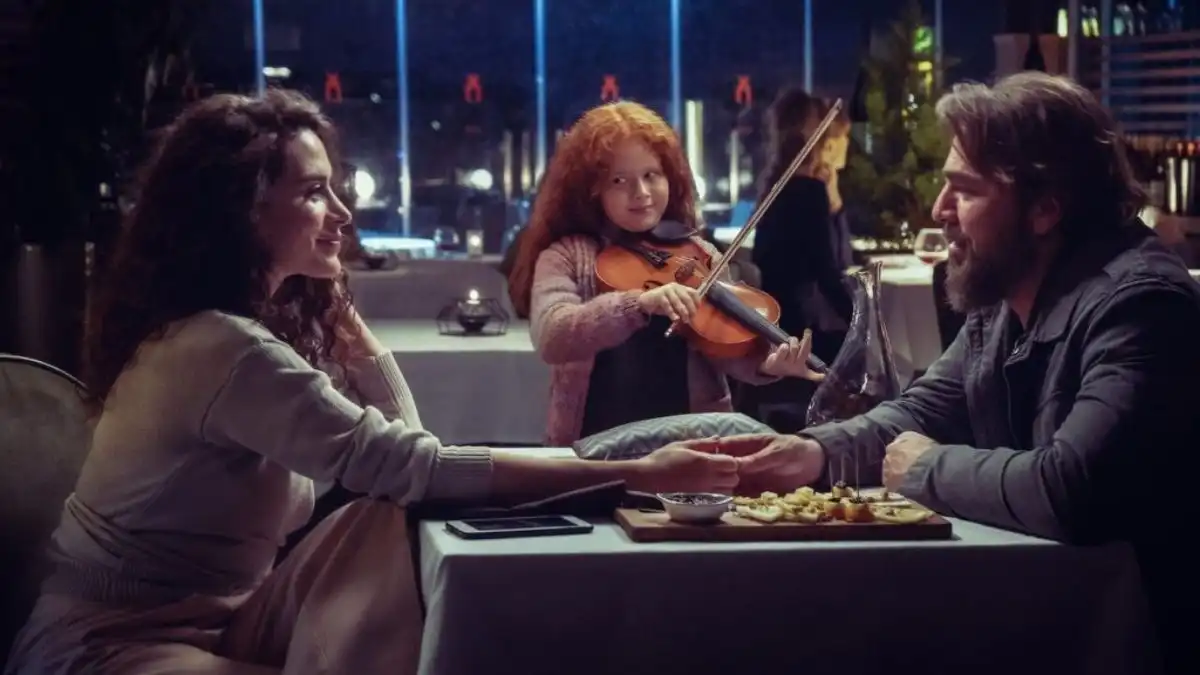My Father’s Violin: An immaculate musical score and a spirited heroine carries this formulaic Portuguese drama
A well-intentioned but overly dramatic musical drama.
Jan 24, 2022

My Father's Violin
Story:
Eight-year-old Ozlem is adopted by her estranged uncle Mehmet Mahir after her father’s sudden death. Reticent and distant, Mehmet Mahir warms up to Ozlem through their common appreciation of violin.
Review:
The heart of the My Father’s Violin, the Portuguese language movie now streaming on Netflix, lies in its young, vivacious protagonist, Özlem, essayed by the precocious Gülizar Nisa Uray. The film begins with her glorious auburn hair flowing in the wind as she flails her arms around in perfect coordination. She is a true performer, like her character in the film, commanding your full attention every time she is on the screen.
Ozlem is her father’s most trusted apprentice, dancing to her father’s music pieces while passing the hat around to collect donations from passersby. She is the daughter of a street musician, after all. They have little means, but they find joy in the little that they have.
Ozlem has also taken over the maternal duties, serving breakfast to her ailing father. Although their lives are difficult, her eyes fill with wonder every time her father explains how every human being has their own music. However, when Ali Raza, her father, realizes he might not live for long, he requests his estranged younger brother Mehmet Mahir to take care of his daughter.
Mehmet embodies the snobbery and arrogance of classical musicians. Dressed in sharp suits and beard always trimmed to perfection, Mehmet is the polar opposite of the dishevelled Ali, perpetually in scraggy, droopy clothes and beaten down shoes. When Ali proudly proclaims his brother has now become a violist, Mehmet scoffs and corrects him. “It’s violin virtuoso,” he reminds his brother and the audience. When he is slapped with a negative piece of criticism, he bellows that the critic must have been a failed musician himself.
My Father’s Violin has all the right intentions, and an emotional core. But the contrived dialogue delivery and the exaggerated acting robs the film of believability. Director Andaç Haznedaroglu is not really concerned with subtlety in the film, whether it be dying characters coughing up blood or dropping dead on the road with people around passively sniffling. In one scene, the orphaned Ozlem slips through the crowded child care centre as overtly sentimental compositions play in the background. The scene, with a heavy “Tom Sawyer with a bowl of watery porridge hangover”, is engineered to make you feel pitiful.
Each character is relegated to a colour scheme too. Mehmet is stern and distant, and thus always wears black outfits. His wife’s calmer, logical demeanour is manifested in her beige clothes. And Ozlem, the literal colour in their lives, is always seen sporting colourful cardigans.
The other issue with the film is that it takes far too to set the stage. While Mehmet’s hesitation with taking Ozlem’s responsibility is justified, the arguments and counterarguments needlessly elongate the movie’s runtime, weighing it down. However, the gaiety background score keeps the film from becoming a sobfest, despite the generous use of sentiments.
Verdict: My Father’s Violin had a kernel of an idea that could have been developed into a great father-daughter movie. But the film’s focus is on its music, which it hits out of the park. Beyond the violin pieces, there isn’t much to write home about this middling family drama.
Share
Where To Watch